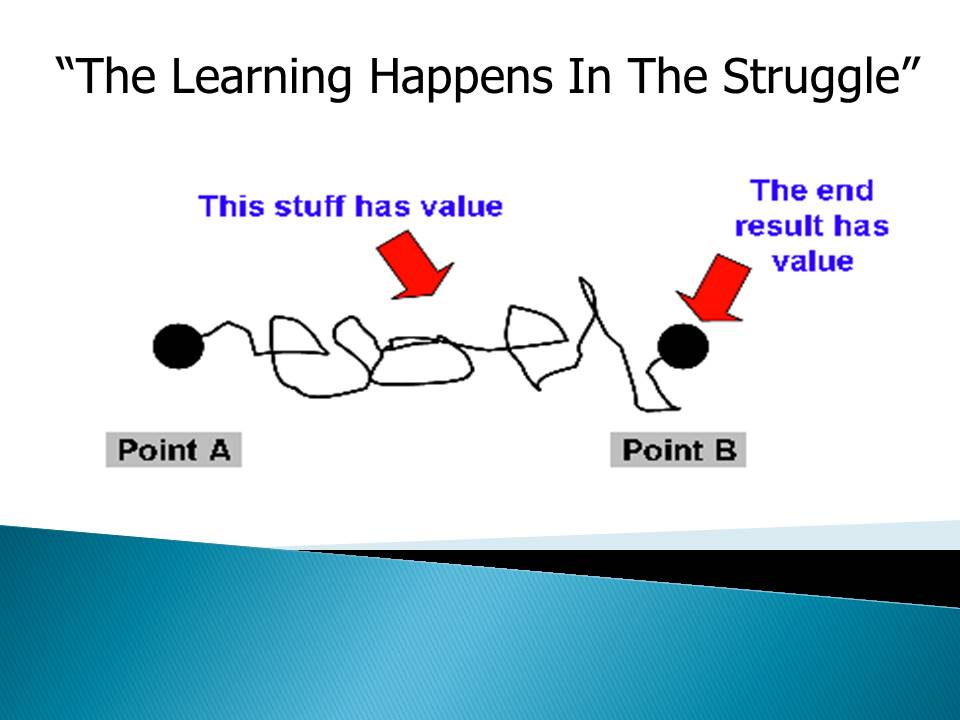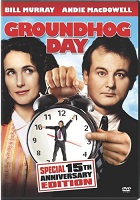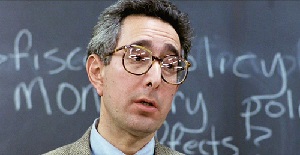 I’m a bad person.
I’m a bad person.
I’m an idealist with little use for idealists. It’s not personal. I like those I actually know. But their articles, and books, and speeches make me want to break things and yell school-inappropriate things.
I resent speakers and writers who build their reputations on explaining how amazing children are and could be if these damn teachers would just get out of the way. I’m sure they’re nice people, smarter and probably better traveled than myself. It’s just that what starts as a neat isolated experience becomes a TED Talk, then a doctrine, then a Pink Floyd cover band.
“Hey, teachers! Leave those kids alone!”
 Don’t get me wrong – it’s just peachy keen swell that throwing a few computers in the middle of an impoverished village and making sure no teachers interfere practically guarantees a bunch of eight-year olds will master calculus, cure cancer, and reverse climate change. Here’s to the success of every one of those dusty darlings and even newer, bigger opportunities for them to challenge themselves AND the dominant paradigm. Seriously.
Don’t get me wrong – it’s just peachy keen swell that throwing a few computers in the middle of an impoverished village and making sure no teachers interfere practically guarantees a bunch of eight-year olds will master calculus, cure cancer, and reverse climate change. Here’s to the success of every one of those dusty darlings and even newer, bigger opportunities for them to challenge themselves AND the dominant paradigm. Seriously.
Variations of this theme abound on Twitter, the blogosphere, and administrators’ bookshelves. Hand any teenager an iPad and stop crushing his little spirit with your outdated ways and he’ll learn like the wind. Enough, you fiend – let them love learning!
But I don’t buy it. Not even a little.
I can’t point to research or books with provocative edu-titles. If you really want me to, I’ll try it – I’ll lock my students in my classroom with the two relatively outdated computers available there and come back in May to release them.
 Maybe it would be better to do the entire building… eleven hundred freshmen set free to learn with a bank of Dells and no silly adults with their stifling expectations. Imagine the money saved on staff – and computers never take personal days or violate professional dress code!
Maybe it would be better to do the entire building… eleven hundred freshmen set free to learn with a bank of Dells and no silly adults with their stifling expectations. Imagine the money saved on staff – and computers never take personal days or violate professional dress code!
Forgive me if I don’t anticipate an education revolution as a result.
My bet is something more akin to Lord of the Flies, although I could be WAY off – it could be more Hunger Games or Clockwork Orange-y. I’m not prescient, I’ve just met teenagers.
It probably doesn’t help that my students have so much else they could do instead of take a self-directed learning journey of personal discovery. The kids in the inspirational anecdotes don’t tend to have an Xboxes, smart phones, cable TV, malls, or meals which include protein.
Remember how entertained you now think you were as a kid with just a cardboard box and some Cheez Whiz for a whole afternoon? That was great, mostly because you had ABSOLUTLEY NOTHING ELSE TO DO. Teeter totters are awesome compared to staring at dirt; they lose some magic compared to Halo: The Arousing. It’s just all so relative. In the land of rotary dialers, he with the Atari is king.
But only there.
 I’m not unsympathetic. I get what these writers and speakers are going for. Most are trying to make the very valid point that when we try to cram kids’ heads full of 87-pages of curriculum standards compiled by committees and approved by states to be tested by bubbles, we are unlikely to either fill their buckets OR light their fires.
I’m not unsympathetic. I get what these writers and speakers are going for. Most are trying to make the very valid point that when we try to cram kids’ heads full of 87-pages of curriculum standards compiled by committees and approved by states to be tested by bubbles, we are unlikely to either fill their buckets OR light their fires.
Our American spawn resist being cajoled into dronehood – which is largely what public ed does and is designed to do. We do try these days to at least beat them into more CURRENT drone models… it’s just that things in the real world keep changing so fast…
But… technology! ALL LEARNING CAN BE GRAND MATH AUTO!
I’m not against online coursework. I know for a fact that it serves a useful function for certain kinds of students in specific situations. But let’s keep a little perspective.
We’re swept up in the promise of ‘individualized pacing’, intense engagement, and infinite branches of exploration – like the Holodeck or those Divergent serums. One would think educational software must be on the verge of surpassing the major video gaming companies in terms of graphics, storylines, and immersion. (Watch out Elder Scrolls VII – here comes Bioshock Civics: How the Powers of the Executive Branch Have Evolved Commensurate to Expansions in Mass Media!)
 It’s not. Remember that Oregon Trail game we were all so excited about a few decades ago? That’s still about as cutting edge as educational games have managed, and that’s not even what most virtual learning is attempting.
It’s not. Remember that Oregon Trail game we were all so excited about a few decades ago? That’s still about as cutting edge as educational games have managed, and that’s not even what most virtual learning is attempting.
The vast majority of online coursework consists of reading short passages, watching videos, following a few links, then answering multiple choice questions. There may be a little writing. You work alone, and guess at the multiple choice questions as often as necessary to hit 75% or whatever before you move on.
This pedagogy is everything we’ve been fighting against since Horace Mann. Nothing wrong with utilizing textbooks or lectures or video, but a teacher whose class is driven by such things is unlikely to win a Bammy.
To be fair, the more cutting-edge programs let you email your teacher or make a few lame required posts to a ‘discussion group’ from time to time. Truly this is leaps and bounds beyond my foldables or a good Socratic circle, but Fallout: Populism it is not.
Most learning happens because teachers in rooms keep trying to figure out how to inspire, motivate, cajole, or trick their darlings into learning things the teacher thinks are important even though the 11-year old may not realize it just yet.
 There are glaring problems with this system, some within the school’s control and many more without. The biggest problem with the current model is also the most substantial barrier to all this self-directed learning we keep hearing will save us all – state legislatures dictate most of what’s supposed to be “important” and decide how these things will be assessed.
There are glaring problems with this system, some within the school’s control and many more without. The biggest problem with the current model is also the most substantial barrier to all this self-directed learning we keep hearing will save us all – state legislatures dictate most of what’s supposed to be “important” and decide how these things will be assessed.
But the absurdity of rigid state mandates doesn’t mean the logical solution is to eliminate all adult guidance regarding essential knowledge or skills. Crazy as it may sound, many good teachers are perfectly capable of finding balances based on the abilities and interests of their kids – some non-negotiables, because hopefully the certified professional knows a few things the pre-teen does not, and some choice for the child regarding what they pursue and how they pursue it.
And if that doesn’t work, we can go back to your plan. But I’m not cleaning up after the pig head on a stick.
Related Post: Teach A Kid to Fish
Related Post: A School of Reindeer

 I’m not much of a conspiracy guy. I’m confident that Lee Harvey Oswald acted alone in killing JFK, and that the ‘magic bullet’ behaved unpredictably because that’s what bullets do. I don’t think 9/11 was an inside job, and I’m 99.3% certain Buzz Aldrin and Neil Armstrong landed on the moon in 1969 no matter what the shadows prove or how wavy the flag might be. Ronald Reagan did not invent AIDS to kill black people, and Obama is not a sleeper cell Muslim from Kenya with a nefarious plan he just keeps… not unfolding.
I’m not much of a conspiracy guy. I’m confident that Lee Harvey Oswald acted alone in killing JFK, and that the ‘magic bullet’ behaved unpredictably because that’s what bullets do. I don’t think 9/11 was an inside job, and I’m 99.3% certain Buzz Aldrin and Neil Armstrong landed on the moon in 1969 no matter what the shadows prove or how wavy the flag might be. Ronald Reagan did not invent AIDS to kill black people, and Obama is not a sleeper cell Muslim from Kenya with a nefarious plan he just keeps… not unfolding. (1) Are we actually trying to break the current cycle of poverty, failure, crime, and dysfunction plaguing large segments of our pre-adult population? Are those in political power both locally and nationally – and those who vote for them – genuinely interested in what happens to a bunch of poor kids who look, you know, black? Or Mexican? Or dirty? Or otherwise unpleasant?
(1) Are we actually trying to break the current cycle of poverty, failure, crime, and dysfunction plaguing large segments of our pre-adult population? Are those in political power both locally and nationally – and those who vote for them – genuinely interested in what happens to a bunch of poor kids who look, you know, black? Or Mexican? Or dirty? Or otherwise unpleasant?  (3) Is most of what we do in the name of “higher standards” and “reform” just a cynical ploy to channel public funds and more power to a handful of textbook companies and corporate entities? This one, sadly, isn’t even all that conspiratorial anymore. It’s been addressed by so many people so much better than I could that it would be redundant to elaborate on that part of the equation here. There’s a second layer to it, though, that I don’t see discussed often, and which to me is just as horrifying.
(3) Is most of what we do in the name of “higher standards” and “reform” just a cynical ploy to channel public funds and more power to a handful of textbook companies and corporate entities? This one, sadly, isn’t even all that conspiratorial anymore. It’s been addressed by so many people so much better than I could that it would be redundant to elaborate on that part of the equation here. There’s a second layer to it, though, that I don’t see discussed often, and which to me is just as horrifying. (5) Finally, as long as we’re talking crazy talk, do those in power have any real interest in an educated populace? What, exactly, would be their motivation for such? Allotting time, energy, and resources to public education of any quality is generally a short-term loser politically. It’s expensive, and the results are long-deferred if they happen at all. There’s little consensus, and great political cost. Plus, there’s a very real danger that committed focus and resources and leadership on this subject could lead to… a much more educated, enlightened voting pool.
(5) Finally, as long as we’re talking crazy talk, do those in power have any real interest in an educated populace? What, exactly, would be their motivation for such? Allotting time, energy, and resources to public education of any quality is generally a short-term loser politically. It’s expensive, and the results are long-deferred if they happen at all. There’s little consensus, and great political cost. Plus, there’s a very real danger that committed focus and resources and leadership on this subject could lead to… a much more educated, enlightened voting pool. But what if they’re like the shampoo aisle at the drugstore – packed with dozens of brands, each of which is broken into a half-dozen hair-types, fragrances, sizes, etc.? It’s almost overwhelming, all the different products available; what a miracle of American capitalism – too damn many shampoos.
But what if they’re like the shampoo aisle at the drugstore – packed with dozens of brands, each of which is broken into a half-dozen hair-types, fragrances, sizes, etc.? It’s almost overwhelming, all the different products available; what a miracle of American capitalism – too damn many shampoos.
 One of my personal goals for this blog and this website
One of my personal goals for this blog and this website Most of you remember Groundhog Day, a movie I felt like I’d seen a dozen times before I was even through my first box of Milk Duds. The basic premise – that something is causing a person, group, or starship, to repeatedly jump back in time to relive a set of experiences with only minor variations – was sci-fi trope long before Bill Murray had those extra pancakes.
Most of you remember Groundhog Day, a movie I felt like I’d seen a dozen times before I was even through my first box of Milk Duds. The basic premise – that something is causing a person, group, or starship, to repeatedly jump back in time to relive a set of experiences with only minor variations – was sci-fi trope long before Bill Murray had those extra pancakes. Workshop leaders or edu-bloggers rarely “open” with this grand bit of modern wisdom – it’s saved for the ‘impact’ moment of the autobiographical anecdote demonstrating both connection with the audience and touching vulnerability – the kind that makes you trust someone enough to buy their book.
Workshop leaders or edu-bloggers rarely “open” with this grand bit of modern wisdom – it’s saved for the ‘impact’ moment of the autobiographical anecdote demonstrating both connection with the audience and touching vulnerability – the kind that makes you trust someone enough to buy their book. I’m sorry you had that one boring teacher in high school all those years ago, I really am. I got sick on chocolate chip pancakes when I was 17 and projectile-vomited all over the hall bathroom, but I’m 47 now and don’t carefully construct each week’s menu around the dangers of Bisquick. Get over it.
I’m sorry you had that one boring teacher in high school all those years ago, I really am. I got sick on chocolate chip pancakes when I was 17 and projectile-vomited all over the hall bathroom, but I’m 47 now and don’t carefully construct each week’s menu around the dangers of Bisquick. Get over it. The funny thing about history is that most of it cannot, in fact, be effectively understood without some knowledge of specifics. Yeah, it’s the big picture stuff that often matters most, and connects us to the past, and teaches us those grand lessons and such, but it’s all built out of particulars. History generally happens to people in places at certain times.
The funny thing about history is that most of it cannot, in fact, be effectively understood without some knowledge of specifics. Yeah, it’s the big picture stuff that often matters most, and connects us to the past, and teaches us those grand lessons and such, but it’s all built out of particulars. History generally happens to people in places at certain times.